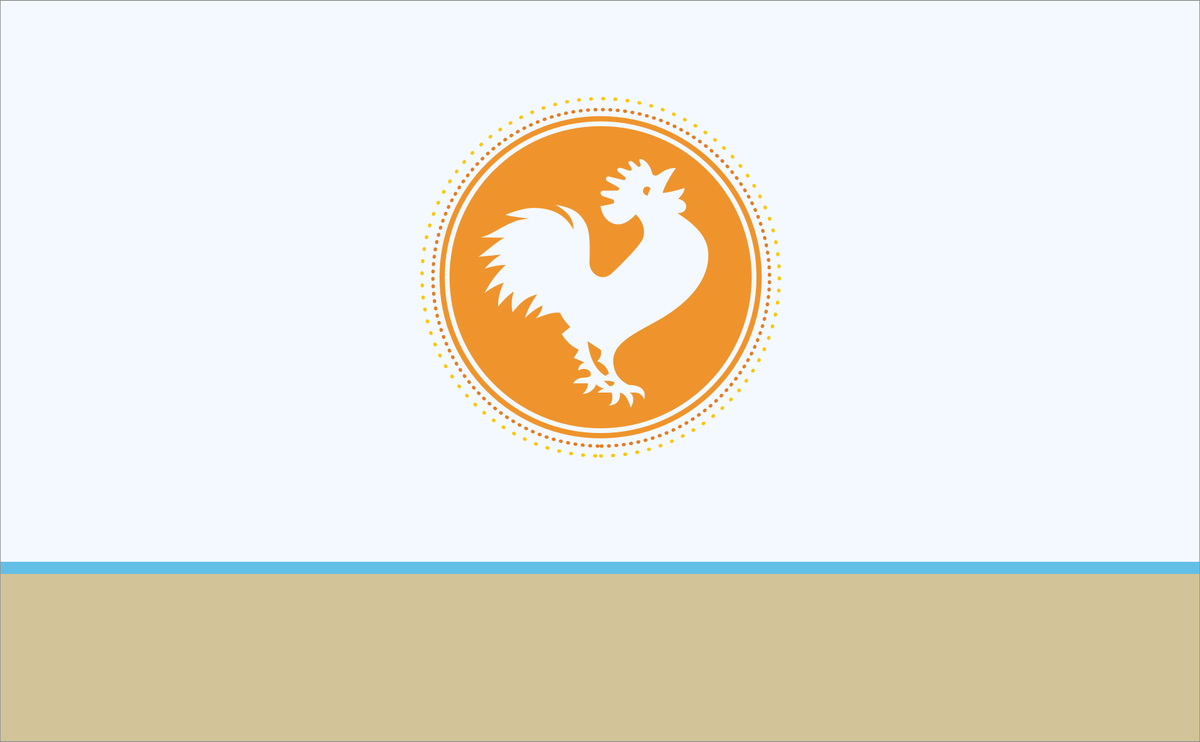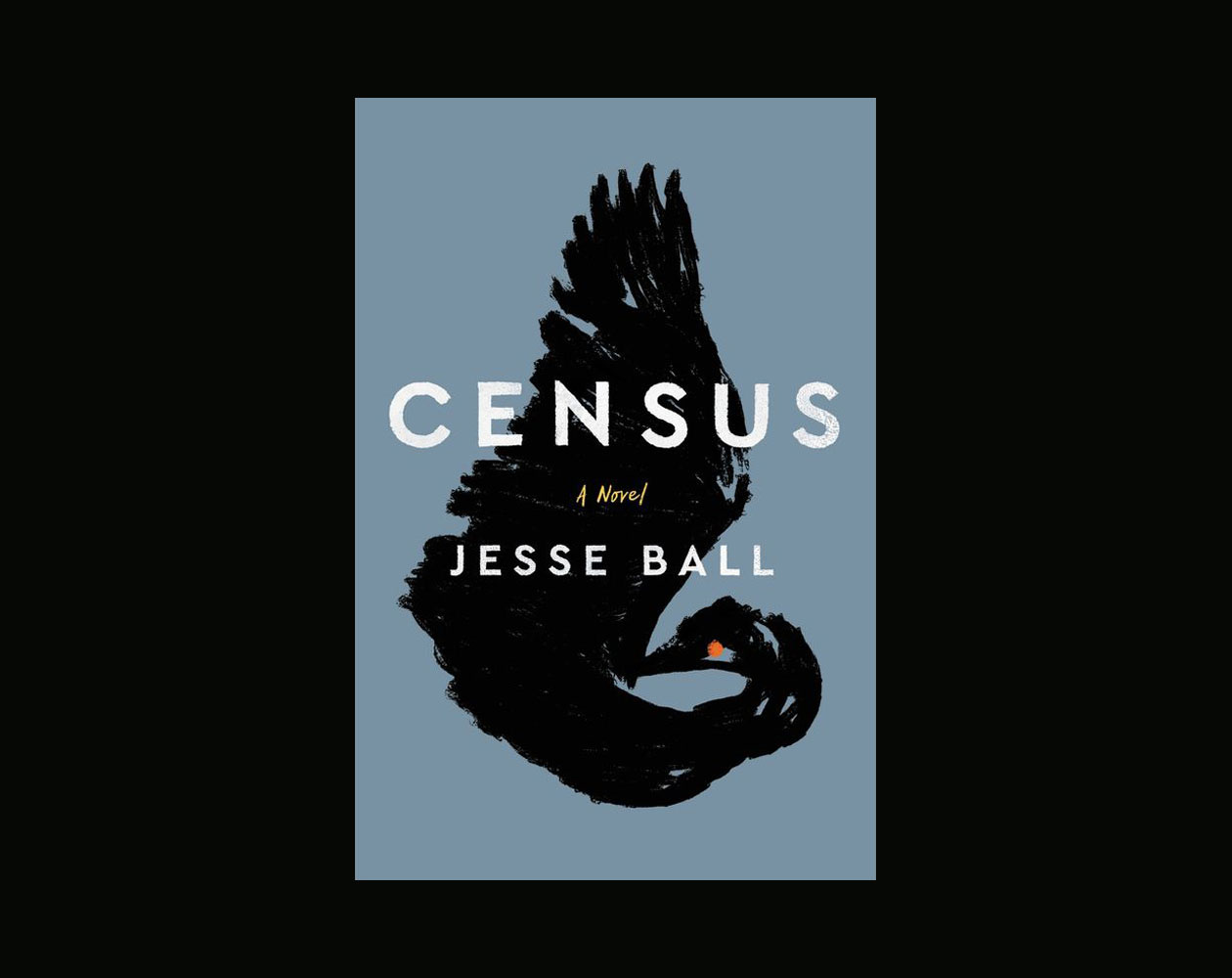The 2018 Rooster Summer Reading Challenge: Week Seven
It's the second book in our July matchup, Census by Jesse Ball, and we're back in conversation with our July judges, Kelly McEvers and Nathan Deuel.

Welcome to the 2018 Rooster Summer Reading Challenge. We’ve selected six Rooster-worthy works of fiction from 2018 to read through August—two per month—and once a week we meet here to discuss our reading progress.
Each month we’re joined by a new judge, who discusses the books with us and then selects which of that month’s two books heads to our summer finale—where you, the readers, decide which novel wins the 2018 Rooster Summer Reading Challenge and an automatic berth in the 2019 Tournament of Books.
(Which kinda counts for a lot, seeing how our 2017 summer winner, Fever Dream, stampeded through the 2018 ToB, eventually taking home the Rooster. By the way, if all of this is new to you, check out this Rooster primer.)
To select our summer books, each of our judges chose a work of fiction they were particularly excited about this year. The other three books were selected by the ToB Committee according to our normal criteria—novels first published in English in the calendar year that we feel are excellent and interesting. (To avoid conflicts, none of the judges were assigned the books they selected personally.)
A special thanks to our Sustaining Members for making another year of the Rooster Summer Reading Challenge possible. Find out why The Morning News and the Tournament of Books depend on your support, and please consider becoming a Sustaining Member or making a one-time donation.
This month we’re reading Circe by Madeline Miller and Census by Jesse Ball, with Kelly McEvers and Nathan Deuel.
- See the reading list and discussion schedule
- Catch up on previous chats: Tomb Song (first half, second half), American Marriage (first half, second half), Circe (first half, second half)
- Jump into today’s discussion in the comments
Please note: We receive a cut from purchases made through the book links in this article.
Andrew Womack: We’re up through “G” in Census, a little more than halfway through, and so far it’s still very much a mystery, to me at least. We know a lot—it seems—about our narrator, who was once a physician and is now dying. We know he is a widower and a census taker traveling the country with his adult son, who has Down syndrome. But we don’t know much about the mysterious census organization he works for, or why the census takers tattoo citizens after they’ve interviewed them. We don’t know when this takes place or why the landscape is like this. We know nothing!
Though something we do know, thanks to Jesse Ball’s introduction at the beginning of the book, is that Ball’s brother, now deceased, had Down syndrome, and this inspired at least certain aspects of the book.
Kelly McEvers is the host of NPR’s Embedded. Nathan Deuel is the author of Friday Was the Bomb: Five Years in the Middle East.
Andrew Womack is a founding editor of The Morning News.
Anyway, in order to limit our discussion this week to the first half of Census, I really had to force myself to put the book down because I am hungry to know what’s going to happen, but can’t risk getting myself all mixed up. So yes, I still know (next to) nothing about what’s happening in the book.
Before we get into our discussion, however, we have a quick update on our August reading schedule. Previously we were going to discuss The Friend in the first part of the month, but now we’ll be reading Kudos to start. Here’s the new schedule for August:
Aug. 1: The Friend through Part Six (page 112) Kudos to page 120
Aug. 8: The Friend to end Kudos to end
Aug. 15: Kudos to page 120 The Friend through Part Six (page 112)
Aug. 22: Kudos to end The Friend to end—voting begins
Aug. 29: 2018 Rooster Summer Reading Challenge winner announced
Now let’s talk about everything we know and don’t know about what’s going on in Census. Welcome back to our husband-and-wife judging duo for July, Nathan Deuel and Kelly McEvers! So, what are your impressions of Census so far?
Nathan Deuel: I’ve loved previous work by Jesse Ball, so I bring a lot of fondness for this project even before I opened the book. Look at that author photo! So stark and moody! And I loved as well the introduction, where Ball talks about how he’d always wanted to write about the peculiar love and honor of being in a family with a man like his brother, and where Ball also shares how this novel was a kind of solution to the problem of putting all that wisdom and power into a format that felt the most true. Rather than, for instance, trying to write a memoir. I also really appreciated the photos at the back of the book, which are (or seem to be—love all the mystery) actual photos of Jesse and his brother, but which also appear in the novel itself. This kind of blend of reality and invention is like catnip for me. There was, out of the gates, almost no way I wasn’t going to love this project.
Kelly McEvers: I’m with you, Andrew. I absolutely love how this is unspooling. And each time we learn one thing, we realize there is so much more to learn about that thing, and about a lot of other things. Unlike Nathan, I am very disappointed that he included the introduction about his brother. I appreciate the project completely, and I would love to hear him talk about this in interviews or in an afterword, but I very much do not want to know what I know—especially given what a delicious mystery the story is. It’s like walking up to a painting and the ghost of the artist is there, telling you things about the work you would much rather puzzle out yourself.
Andrew: So this is already something! One question in—one author introduction in—and I can see we’re coming at Census from three pretty different places. The photos Nathan mentions, that seem to make this feel more like a “project” than a “book?” I actually didn’t see them, because of late I’ve taken to listening to audiobooks, which could be giving me a whole extra level of separation from the nonfiction angles of Census.
Relatedly, while so far I really like the style of Census—very exact and observational, which feels in line with the narrator’s medical background—the audio of this one is a little too upbeat for what I, at least, imagine the true spirit of the book to be. I tried switching over to the text version, where I can better apply the narration style I imagine this to have, which I guess would be more akin to Clive Owen in Children of Men. The upshot of all that is that, as best as I can tell, this novel feels postapocalyptic, but that’s entirely a guess, because it’s still not specified. What do you think is happening?
Nathan: Oddly enough, being married to a radio lady, I don’t really enjoy audio storytelling that much! I had such a viscerally negative reaction just now to you sharing the fact you’re listening to this book rather than reading it. Ugh. Not that it’s always a bad choice. But the voice being cheerful!? That’s so wrong. In my mind this father is so quiet and intense and measured. This is not a bouncy fairy tale. This is a knife-edged, tense, spare, bizarre world. A sad place. I personally didn’t spend a whole lot of time wondering what, if anything, the apocalypse was, to the extent there is information suggesting some kind of calamity. I mainly was reveling in all the curious and exhilarating human drama this man and his son encountered in each town. I was learning, I think, about my own world.
Kelly: I loved Ball’s style from the beginning. His mix of repetition and movement and questions seem to be such an authentic portrayal of this doctor’s mind. I love it when he says something happened, but he won’t bother to tell us about it just now, or that he forgot something. I can’t actually imagine listening to this in audio, as much as I deeply feel this man talking directly to me, the voice is that strong. The sections are short, and they are sections, and with every page I am delighted and surprised.

When a widower receives notice from a doctor that he doesn’t have long left to live, he is struck by the question of who will care for his adult son—a son whom he fiercely loves, a boy with Down syndrome. With no recourse in mind, and with a desire to see the country on one last trip, the man signs up as a census taker for a mysterious governmental bureau and leaves town with his son. (Amazon / IndieBound / Powell’s)
Book description excerpted from publisher’s summary and edited for length.
Andrew: The short sections you mention have me (and others) comparing this book to Italo Calvino’s Invisible Cities, which I love. And I’m taking that link to heart in how I navigate this book, that the plot may be less about what happens in the individual locations, but about what we as readers take away from the book’s whole. That said, my fear is that the second half will leave many of those questions unanswered, so I’m very glad we’re all here to discuss this book together, because I suspect they won’t be easy answers to reach.
Kelly: There will be a lot unanswered. And I’m OK with that. Though I do worry that the device of going door to door, like the Maysles brothers film Salesman, only has so many tricks before it starts to feel tedious. There’s the angry son, the weird sisters, the forlorn, the mysterious oppositionists. I like what each suggests about the mythical state in this story—the entity that would employ people to take a census in the first place. And I like that with each one the mystery only deepens. I also think it will be hard to maintain. That said, we are in very good hands here.
Nathan: I think it’s in part because of the training I had in school and also because so many people in my extended family tell weird and swirling stories that don’t always make sense—in any case, I’ve always felt really comfortable getting lost in difficult and inscrutable books, many of them from that post-modern canon. A confusing and twirling world like Calvino’s was, from a young age, super welcoming to me. Same with the work of people like Pynchon and Coover and Gaddis and Cortazar and the more recent stuff, like Jesse Ball. All of this is to say that I’m not really waiting for any questions to get answered. I don’t necessarily want it all to resolve. I enjoy mucking around in narratives that offer really thin oxygen, where it’s dark and murky and you don’t know where, if anywhere, you’re actually going.
Andrew: Of all the strangeness in the book so far, and all the things we don’t know, the oddest to me is that the narrator’s wife was a famous clown, two words that outside of a press conference in Helsinki, don’t go together in our current age. I suppose when I’m thinking speculative fiction, I’m looking for some connections to the present day that show the pathway from here to there. And especially in a book like Census, where so far it’s entirely mysterious, this element, for me, doubled down on the mystery.
Nathan: I absolutely loved that the wife was a famous clown. It somehow did a lot of work for me in answering why I should care about these people. A doctor who is dying—fine. His son with Downs. Yes, OK. They go on this crazy adventure. Sure. But I love the way we learn his mother has this really specific and vivid back story. It’s bonkers. And the fact she’s famous gives the whole universe he’s creating more heat and sizzle. I love what we learn about the training she’d undertaken. I appreciate her success. I love the way we need to consider what matters and what it means to be a good clown, a good doctor, a good parent. These swirling matters compel me.
Kelly: Right? And the description of that skit about the fork? This is definitely the most puzzling pieces of the story, and it’s one I have little confidence will be reconciled in any sort of way, and yet that’s completely OK.

The Infinity Rooster finds its way to your beach chair, with a towel you could spot from the breakers. New batches print every three days—order yours now. As a reminder, Sustaining Members receive 50 percent off everything at the TMN Store. To find out why we’re asking for your support and how you can become a Sustaining Member, please visit our Membership page.
Andrew: Oh, the fork, yes! From “The Show That Killed a Clown.” There are so many wonderfully strange moments in this book, and I’m intrigued to know what, if anything, it’s all going to add up to.
I’m also very curious to see how the son’s character is going to play out in the second half. As a character, he presents a different element to what I consider the best kind of fiction. The brutalist in me prefers a book that’s stripped to its core, which is then built upon in meaningful ways. I want there to be a reason for everything contained in its pages.
What’s so different with the son, though, is that Ball says in the preface that his goal was to write a book with a character who has Down syndrome in order to create more understanding, and taking it from that direction, I feel like Census has been a worthwhile introduction for me to what it’s like to know and love someone with Down syndrome, which I never have. I’m good with the character if that’s the purpose—and so far it’s been effective—but I wonder what role having Down syndrome is going to play out for this character in the second half. Like, how is this part of the character going to play out.
Kelly: Again, I very much wish he had not told me that was the project. It’s a great project! And it comes through so much in the writing—in the way the father and mother delight in this young man over the years, hear him, see him, protect him but also free him—that it is more than enough to draw me in. The looming worry, of course, is that he will get put on that train. But at this midpoint I find myself hoping that he does and believing that something surprising and possibly harrowing but ultimately cathartic will come of it.
Nathan: I alluded to how much I admired that preface. It’s exciting to me, to know Jesse Ball wanted to write about his life, but that a memoir didn’t feel right. I’m not sure his goal was necessarily to build a character with Downs. Rather, it was more to portray the situation of living in a world with someone with Downs. Based on your question, I’m not sure how successful I would say this book is in creating and deepening that character. But I’m not sure that was the point. It would be really satisfying to me, to know how other people would react to this, who have lived with family members like Jesse’s. Maybe they’d hate it?
Andrew: Maybe? As we draw to the end of the first half of Census, I do want to say I feel like this is one of those books that’s almost too short—perhaps too other things as well—to discuss in halves. There’s a single story here that feels like it’s meant to be taken (again, as with Invisible Cities) as a whole. Still, I’m glad we have this brief intermission in the book to consider what the experience is like, even if there are few concrete ideas yet to discuss. I have a feeling we’ll be in for a more in-depth discussion next time.
Kelly: I honestly have no idea if it’s too short. There are places I would cut and places I would expand, but what do I know?
Nathan: This happens to me sometimes, when a book’s engine is really finely tuned, I have this feeling it wasn’t made, it was somehow snatched out of the cosmos fully formed. It sounds silly, I know, and I don’t think I’ve ever actually articulated this. The fact that the mother was a clown! It’s almost too perfect. Like Jesse Ball didn’t write that; it came to him. This feeling—this admiration for a writer that goes beyond admiration, it’s almost like: You didn’t do this, it’s too good to be human, this is not the result of work but of luck—only comes to me once a year or so. I love the feeling. Hopefully it continues for the second half!
Subscribe to the Rooster newsletter
You will receive email from The Tournament of Books. Opt out at any time. (View our privacy policy.)

